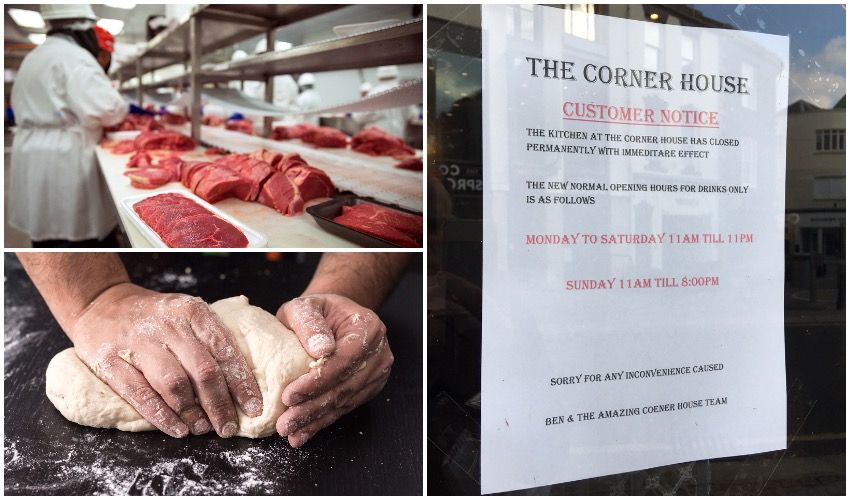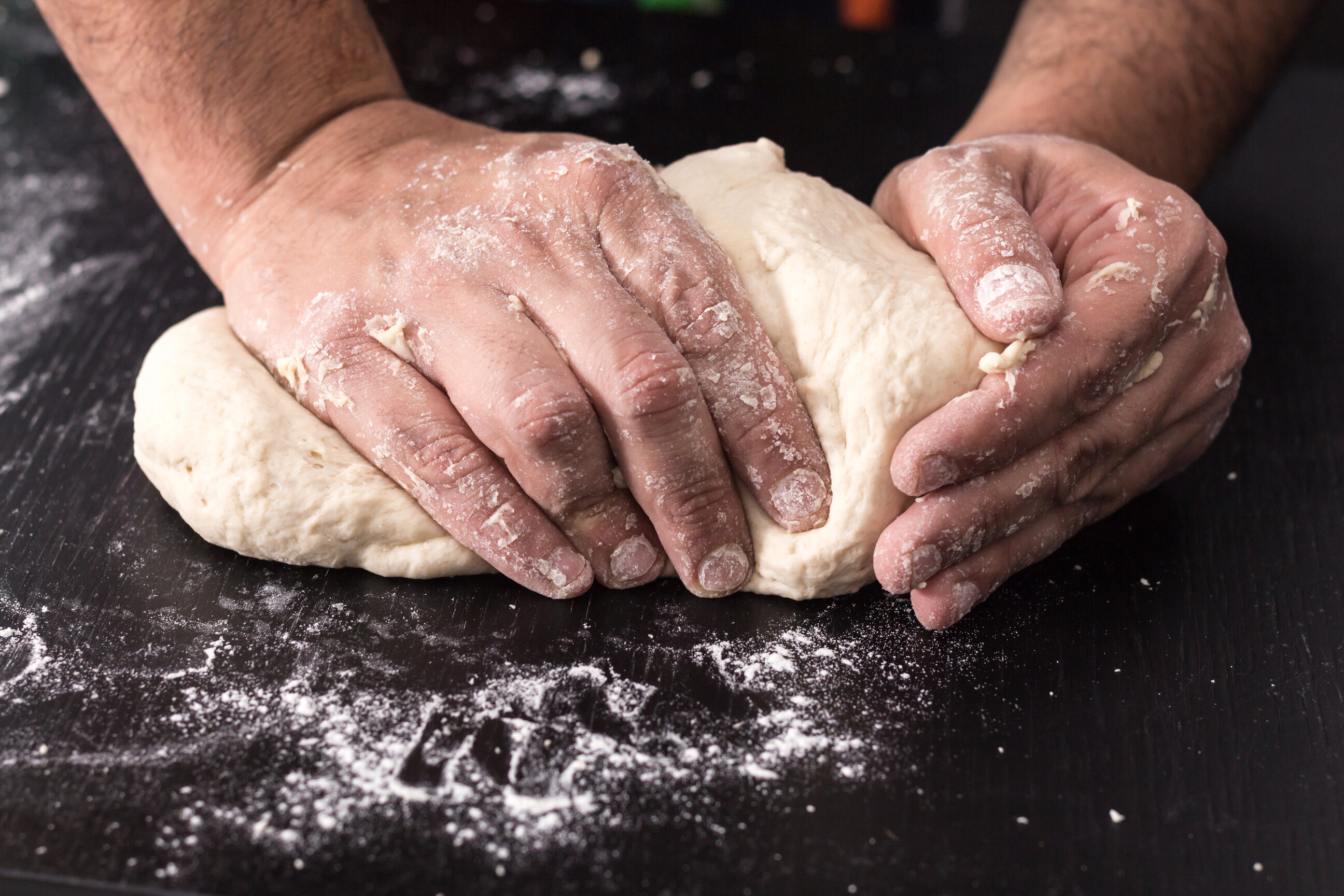


Ingredient inflation is biting in Jersey, with one popular pub closing its kitchen for good last week because of rising prices.
With staff shortages already causing significant challenges to restaurants, hotels and bars, the increasing price of basics such as pasta, beer, bread and pork, as well as packaging, is also having an impact.
Last week, one popular town pub, renowned for serving up hearty breakfasts, was forced to close its kitchen due to several issues, including rising ingredient and running costs.
As Express walked into the recently refurbished and rebranded pub at Snow Hill, chef Ryan Gough was packing away his knives for the final time. With demand for chefs high, he’s off to another kitchen but was sad to be leaving the Cornerhouse.
Pictured: The Cornerhouse on the corner of La Colomberie and La Motte Street has permanently closed its kitchen.
“We were told by our suppliers that the cost of food packaging, like cardboard, glue and tape, have gone up by 60% and they’ve had to pass it on to their customers,” he said.
“There are so many jobs that need filling too; I know of a number of Polish chefs who went home because of covid but haven’t been able to come back due to Brexit.”
The Cornerhouse, which is part of a group comprising the Tipsy in St. Peter and the Horse & Hound in St. Brelade, was forced to close its kitchen last week and has put up notices around the pub to remind customers.
Ryan added: “The pub fortunately does really well behind the bar, but the closure of the kitchen is still a great shame. Breakfasts was particularly popular, including our ‘Mega’, which had four of everything; people were certainly fuelled for the day if they got through that.”
Pictured: The Cornerhouse have let customers know through social media as well as signs around the pub.
The Cornerhouse is not alone in facing a plethora of difficulties.
Gavin Reid, who is Managing Director of pub group Randalls, said: "It is challenging times and we have seen significant increases in the cost of produce which is being exacerbated by the increases in shipping and freight charges in light of rising fuel prices.
“Many manufacturers are still playing catch up post-covid, which means there are shortages in the supply chain, and we all know that if demand exceeds supply there are bound to be increased costs.
“One area which also hits us significantly in light of spiralling shipping costs is the fact we need to return empty kegs and gas cylinders to UK, something I don’t think many other sectors have to incur.
He added: “We are also faced with huge increases in staffing costs due to staff shortages - again supply/demand theory leads to increased wage costs to secure professional and trained staff to allow us to operate. We are absorbing most of these costs at present but there will come a point when prices will have to be reviewed.
“The Government continue to increase duty year-on-year, and only recently the minimum wage increased by 10.8 per cent on last year’s rate.
“If ever there was a recipe for the perfect storm to drive inflation and drive prices up, then we have all the ingredients in the bowl and we are certainly starting to see the clouds getting thicker.”
Those thickening clouds have only become darker after Russia’s invasion of Ukraine. Known as the ‘breadbasket of Europe’, Ukraine is the world’s fifth biggest producer of wheat.
Together with Russia, the two countries account for around a third of globally traded wheat.
David Dodge, who owns Vienna Bakery, said that most of Ukraine’s wheat was exported to Africa and other developing countries, so the impact of the war would not only have a devastating impact on Ukraine itself.
“It is almost inevitable that prices will rise; wheat does not fluctuate like other commodities but there will invariably be a knock-on effect,” he said. “However, the challenges we face are insignificant compared to those directly affected and those who rely on their exports.”
Locally, Mr Dodge did say that he did expect prices to rise, although Vienna had held off as much as possible to support the hospitality industry, which had been hit so hard by covid.
One way each of us could mitigate against wider issues, he added, was for people to use less processed and convenience products and put more emphasis on what went into our food and where it came from.

Pictured: Consumers need to pay more attention to where their food comes from, argues Mr Dodge.
“Supply chains internationally are disrupted but it is a local issue as well; just look at what is happening at Woodside Farms,” he said.
“I think many people take food for granted, which is something that we, as a community, need to address. We have to decide what is important in life.
“We need to pay far more attention to the provenance of food and what goes into it. I don’t think everyone understands their food as they should. In France, more than half of all bread consumed is made by craft bakers but, in the UK, it is only three per cent, as most people choose to buy mass-produced, processed loaves.
“We are fortunate in Jersey that many people recognise the flavour and goodness of craft bread, and the supermarkets support us, too.
“We have to learn to reconnect with each other through food, by cooking and eating together. It might sound insignificant but it is an important step.”
Today, Greggs – the bakery and fast food chain – was the latest company to warn that profits this year will be squeezed and prices could go up because of rising costs, supply chain difficulties and labour shortages.
Ukraine war 'to hit Jersey in the shops and at the pumps'
130-year-old Jersey farm on brink of closure
FOCUS: Woodside story – how significant would its closure be?
Comments
Comments on this story express the views of the commentator only, not Bailiwick Publishing. We are unable to guarantee the accuracy of any of those comments.